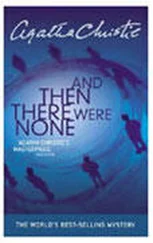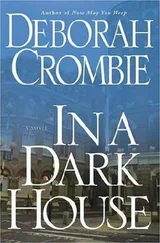Much of the housing around Portobello remained poor up to and beyond the Second World War, when it was still not unusual for homes to have a shared lavatory, no bathroom, and cooking facilities on the landing.
– Whetlor and Bartlett,
from Portobello
Portobello had always been a road of mixed use, the antiques shops and arcades tucked in among flats and cafés and ordinary businesses. Borough, on the other hand, was an old dockside warehouse district made fashionable by its proximity to the river and, except when the Friday-morning produce market was in session, there was nothing in its dark brick buildings and narrow streets innately friendly to the casual pedestrian. Kincaid and Doug Cullen found the address the Arrowoods had given them easily enough, however: a loft in a converted warehouse.
Charles Dodd was young, balding, with a plain, intelligent face. His black jeans and turtleneck made an interesting counterpoint to the glass-and-greenery airiness of the loft behind him.
"Charles Dodd?" Kincaid presented his warrant card. "I'm Superintendent Kincaid, and this is Sergeant Cullen. Could you spare us a few minutes?"
"What's this about?" Dodd inquired, but his manner seemed friendly enough. "I've just got home from work and I've guests arriving in a few minutes." As Dodd led them to a pair of matching white sofas, Kincaid noticed that a section of floor had been done in glass blocks that allowed a view of the high-tech kitchen on the lower floor.
"This won't take long," he assured Dodd. "Terrific flat you've got here. Good for entertaining, is it?"
"As a matter of fact, it is, and cooking's my stress relief from work."
"Last Friday evening, I understand you gave a drinks party here?"
"I did, yes. All perfectly legal, I assure you. Nothing served but wine."
"And Sean and Richard Arrowood were among your guests?"
"Those wankers?" Astonishment warred with amusement in Dodd's face. "What are they supposed to have done?"
"Their stepmother was murdered on Friday evening," said Cullen. "We need to ascertain the whereabouts of anyone who had a connection with the victim."
"You can't seriously think those two had anything to do with their stepmother's death? I read about it in the paper, a dreadful thing. But Sean and Richard couldn't slaughter a chicken between them if it meant the difference between eating and starving to death." Dodd lit a cigarette. "Oh, Sean's not so bad, really- or he wouldn't be if you could keep him away from his mother and his brother- but Richard's a parasite."
"Why invite them to your party if you dislike them?"
Dodd grimaced at Kincaid. "Work. Richard's in the same office; Sean comes along gratis. Gets awkward if you invite everyone else and leave Richard out."
"What time did they arrive on Friday?"
"Between half-five and six. We all came straight from work."
"And they stayed until what time?"
"About eight. A few of us went out to dinner then, but not Sean and Richard."
"Can you be sure they were here the entire time?"
"There were fewer than a dozen of us. I'd have noticed if they'd nipped out for a murder. Besides, Richard was hitting the wine even more heavily than usual, and I was wondering if I was going to have to chuck him out. Sean saved me the bother, in the end."
"Richard was difficult?"
"Obnoxious would be a better description. Coming on to a lady who didn't fancy him at all. Possibly a bit of overcompensation for not admitting that he prefers boys."
"Would you say Richard's behavior seemed worse than usual? Did he seem nervous, upset?"
Dodd took a moment to put his cigarette out in an art-glass ashtray. "Hard to say, really. He was certainly fretful, but then he's rather an emotional sort."
Kincaid recollected Richard Arrowood's pallid countenance and incessant sniffing. "I suspect that Richard is not unacquainted with drug dealers. Do you by any chance know who supplies his coke?"
"Not a clue. Couldn't afford this flat if I did that sort of thing," Dodd added, but his smile had become strained.
"We'll need to have a word with the other guests at your party, if you could jot their names and addresses down for us."
Dodd complied, although not happily. "This is going to do wonders for my reputation as a host," he grumbled as he gave them the finished list.
"You never know," Kincaid told him as they said good-bye. "It might add a bit of excitement to the prospect. Good food, good wine, a visit from your friendly copper."
When they reached the street, Kincaid handed Cullen the list.
Cullen groaned. "Does this mean what I think it does?"
***
In the year following her mother's death, Angel slowly realized that she had lost her father, as well. Gone was the gruff man who had joked and teased with her; in his place a ghost wandered about the flat, eating the meals she prepared for him in silence, sitting vacantly in front of the television.
At first she made every effort to get his attention, talking to him, asking questions, begging for stories. But gradually she learned to exist in silence, as he did, and they moved through their days as if in two parallel but unconnected universes. So it was that when she came home from school one January afternoon to find him sitting motionless in his chair, it was half an hour before she realized he was dead.
A stroke, the doctor said, shaking his head and clucking in dismay. But as soon as he'd notified the undertaker, he had taken his bag and gone on to the more rewarding job of ministering to the living.
Mrs. Thomas offered to help with the funeral arrangements, while Betty and Ronnie, stunned by another death, avoided her eyes. "It's not contagious, you know," Angel hissed at them, but she soon learned that their behavior was the least of her worries.
"You'll have to know how much you can afford before we talk to the funeral director," Mrs. Thomas advised her. "You had better see the bank manager, first."
Angel knew the bank manager from the days when her father had frequented the Polish café. A heavy man given to perspiring and wiping his bald scalp with a handkerchief, there was none of the jollity Angel remembered in his manner. He, too, shook his head and clucked, making her want to scream, but she merely sat quietly and waited.
"Your father was not the best with financial matters, Miss Wolowski," the bank manager told her reluctantly. "Especially since your mother's death. Whatever savings he had, he spent on her treatment, and I'm afraid that this past year he's brought little in."
This didn't come as a great surprise, as Angel had become accustomed over the past few months to the coldness of the flat and the scarcity of the money her father had given her to buy food. Nor had he spent much time trading at his stall in the market. "But surely there must be something?"
"Perhaps enough to settle a few minor accounts. The butcher, the greengrocer. But that's all. And I'm afraid your landlord has a reputation for moving quickly on these things, so you'll need to vacate as soon as possible."
"Vacate?"
"I'm afraid so."
"But I have nowhere to go."
"Your father must have appointed a guardian of some sort for you?"
"No."
The bank manager looked distressed, whether on her behalf or his own for having to deal with her, she couldn't tell. "Well, how old are you, my dear?"
"Sixteen."
"You're of school-leaving age, then," he said with apparent relief. "I suppose you'll have to find work of some sort. I'll be more than happy to give you a reference. And there is one other thing. At the time of your mother's death, your father bought the adjoining plot at Kensal Green for himself, so that's one expense you needn't worry about."
Читать дальше












